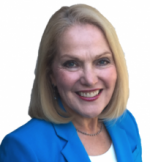Interview: Common Challenges in Helping Aging Parents
Hello everyone. Welcome to better health while aging, a podcast that gives you strategies and tips about improving the health and well-being of older adults. We discuss common health problems that affect people over age 60, the best ways to prevent and manage those problems and we also often address common concerns and dilemmas that come up with aging parents and other older loved ones, like what to do if you’re worried about falls or safety or memory or even the quality of a seniors healthcare.
I’m your host Dr. Leslie Kernisan. I’m a practicing geriatrician, so that means I’m a medical doctor specialized in geriatrics, which is the art and science of modifying healthcare so that it works better for older people, and for their families.
Today’s episode features a special guest and we are going to be talking about common challenges related to aging parents. My guest is Carolyn Rosenblatt. She is an attorney and a registered nurse, and for the past several years she and her husband Dr. Mikol Davis, who is a geriatric psychologist, have specialized in helping families resolve difficult issues related to older parents. They have a website at AgingParents.com.
Carolyn is the author of “The Family Guide to Aging Parents” and several other books about assisting older adults with legal, financial, and life issues. She also write a column about aging for Forbes.com.
I have read many of Carolyn’s Forbes columns over the past few years and also read her book recently as I was writing one of my own articles about advance planning for legal and financial issues. So I’m thrilled that she was able to join me today to share some of her insights on how to manage some of the common challenges and dilemmas that families often struggle with.
Carolyn, welcome to the show.
Questions:
- Tell us about your practice and how did you come to specialize in families and aging parents?
- What are the most common types of problems that people ask you to help them with?
- Some common scenarios we can discuss:
- People are sometimes concerned that their parent is losing mental abilities, or becoming “incompetent.” They also often complain that their parent is refusing to talk about the issues and refusing to go see a doctor. What are some of your suggestions to help families resolve this?
- People worried about how their parents are spending money, and/or worried that someone else is influencing the spending (e.g. a sibling)
- People worried about their parents driving
- People who want their parents to plan for decline in the future but the parents refuse or avoid the subject
- How can older adults and their adult children plan ahead to avoid many of these difficult situations? Can you share some favorite resources that are effective in helping people through this?
- For families that have set up springing powers of attorney, there is often a requirement that a doctor or other clinician say the older person no longer has capacity to manage finances or whatever power is in question. But families often say they can’t get the person to the doctor/psychologist to obtain this assessment. Suggestions?
- There is really a lot that families could and should do to plan ahead. If people are feeling really limited in time and energy, what do you think are the most important or high-value things to do, when it comes to older parents who are doing ok now.
- Another angle on this: what are the things that people end up regretting not doing the most often?
- You’ve written a lot about preventing financial abuse of older adults. What are some useful steps you recommend to prevent this from happening, or from causing serious financial losses?
- You have a chapter on helping older parents from a distance, and you write about how you and your husband eventually hired a care manager, in order to have someone close to your mother-in-law. What do you recommend for people who feel they can’t afford to hire a care manager?
- How can families deal with declining abilities, dementia, and physical dependency if there isn’t family to provide care or money to hire someone?
- How have you and your husband planned for your own future? (We can skip this if it’s too personal.)
At the end I will tell people they can learn more about you and your special consultation practice at AgingParents.com.

